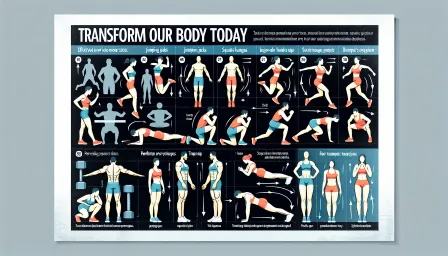Hormonal Balance and Estrogen: The Ultimate Guide to Balanced Health

Discover how hormonal balance and estrogen play a crucial role in your overall health. Our ultimate guide offers well-researched insights for balanced health.
Introduction
Hormonal balance is an integral factor in maintaining overall health and well-being, and estrogen is one of the key hormones that play a critical role. Understanding how estrogen functions and its impact on your health can provide the foundation needed for achieving optimal hormonal balance. This ultimate guide will delve into the importance of estrogen, signs of hormonal imbalances, and practical tips for maintaining balanced hormones.
The Role of Estrogen in the Body
Understanding Estrogen
Estrogen is a group of hormones primarily responsible for the development and regulation of the female reproductive system and secondary sexual characteristics. However, estrogen is not exclusive to women; men also produce it, albeit in smaller quantities. The three main types of estrogen are estradiol, estrone, and estriol.
Functions of Estrogen
Estrogen influences various bodily functions, including:
- Regulating menstrual cycles
- Supporting pregnancy and fetal development
- Maintaining bone density
- Modulating mood and cognitive functions
- Facilitating proper cardiovascular function
Signs of Hormonal Imbalance
Symptoms in Women
Hormonal imbalances can manifest in multiple ways. Common symptoms in women include:
- Irregular menstrual cycles
- Hot flashes and night sweats
- Weight gain or difficulty losing weight
- Mood swings and depression
- Decreased libido
Symptoms in Men
Men can also experience hormonal imbalances, often presenting as:
- Fatigue
- Decreased muscle mass and strength
- Low libido
- Mood changes
- Increased body fat, especially around the abdomen
Causes of Hormonal Imbalance
Natural Factors
Several natural factors can lead to hormonal imbalances, such as:
- Aging
- Menopause in women
- Andropause in men
Lifestyle and Environmental Factors
Some lifestyle and environmental factors contributing to hormonal imbalances include:
- Poor diet
- High stress levels
- Inadequate sleep
- Exposure to endocrine disruptors
- Lack of physical activity
How to Maintain Hormonal Balance
Diet and Nutrition
A balanced diet is fundamental to maintaining hormonal balance. Key dietary recommendations include:
- Consuming a variety of fruits and vegetables
- Incorporating healthy fats, such as omega-3 fatty acids
- Limiting sugar and refined carbohydrates
- Ensuring adequate protein intake
- Staying hydrated
Regular Exercise
Engaging in regular physical activity helps regulate hormones. Both aerobic exercises and strength training can be beneficial in maintaining healthy hormone levels.
Stress Management
Chronic stress can disrupt hormonal balance. Techniques such as meditation, yoga, deep breathing exercises, and mindfulness can help mitigate stress.
Quality Sleep
Aim for 7-9 hours of quality sleep each night as poor sleep can significantly affect hormonal balance. Establish a consistent sleep routine and create a conducive sleep environment.
Avoiding Endocrine Disruptors
Steer clear of chemicals that can interfere with hormone function, such as BPA, phthalates, and certain pesticides. Opt for natural and organic products where possible.
Medical Interventions
Hormone Replacement Therapy (HRT)
Hormone Replacement Therapy can be an option for those experiencing severe hormonal imbalances. HRT can alleviate symptoms by replenishing hormone levels, but it should be approached under medical supervision.
Medications and Supplements
Various medications and supplements can support hormonal balance. Consult with healthcare professionals to determine the appropriate options based on individual needs.
Conclusion
Achieving and maintaining hormonal balance, particularly concerning estrogen, is essential for overall health and well-being. Understanding the roles and impacts of estrogen, recognizing symptoms of imbalance, and implementing lifestyle changes can pave the way for balanced health. Consulting with healthcare providers for personalized advice and potential medical interventions can further support your journey to optimal hormonal health.



























